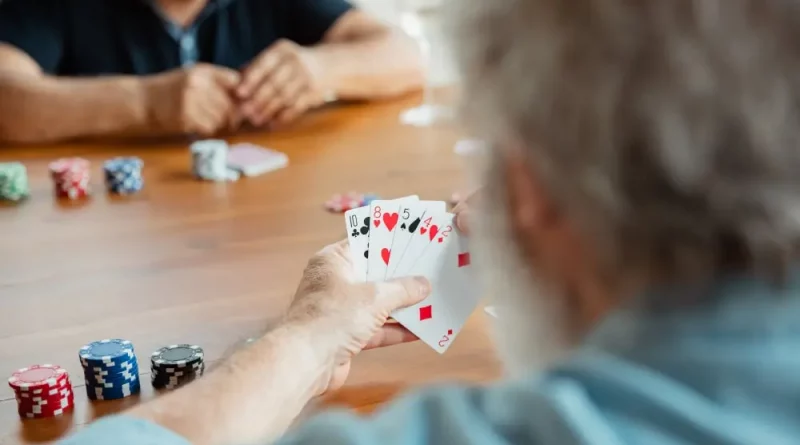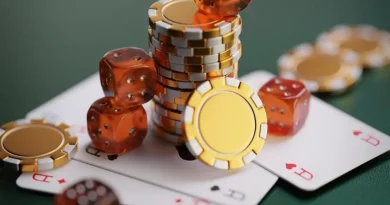The psychology of gambling
Diving into the labyrinth of gambling psychology necessitates a nuanced understanding of the intricate motives that entice individuals towards the allure of the casino table. There’s a stark dichotomy between the behavioral tendencies of recreational gamblers and those with a gambling problem.
Over the last two decades, numerous research groups, employing tools from behavioral and neurological research, have shed light on the cognitive mechanisms at play that contribute to problematic gambling habits. Through their efforts, they have specifically honed in on the modes of thinking that trigger destructive behavior. Research spearheaded by renowned personality Dr. Marc Potenza from Yale School of Medicine has contributed significantly to forming a common understanding surrounding the cognitive cycles distinctive to pathological gamblers.
Why do people choose to bet?
People find themselves engrossed in a game of gambling lured by a multitude of reasons. For the most significant part, people engage in gambling in a social setting, taking pleasure in the game for a while and then retiring from it without feeling any overwhelming compulsion or distress. Examining the motivations of casual gamblers not only provides a standard against which the behavior of problem gamblers can be contrasted, but it also unveils the reasons behind the popularity of casino gambling.
According to reports from the American Gaming Association (AGA), the majority of gamblers, approximately 90%, engage in responsible gaming where they do not exhibit any addictive gambling behaviors. These individuals often referred to as ‘recreational gamblers’, partake in casino games driven by varying motivations.
Joy of gambling
Many individuals find the act of gambling itself enjoyable. Games like real money slots bring joy to many gamblers, as it is not only the allure of winning but the fun derived from the play itself that makes gambling an entertaining pastime. Additionally, betting can offer an adrenaline-filled rush that is akin to the excitement experienced during a live sports event, hence a source of excitement and thrill for many.
Society of gambling
Frequently, gambling is also seen as a social event where individuals form bonding and camaraderie over shared bets, harmonious wins, and shared competition. The act of betting collectively in games of craps or the shared thrill of competitiveness in poker games often adds a social aspect to gambling.
Fueling the desire to win & adrenaline rush
Moreover, certain individuals see gambling as an opportunity to showcase their wealth and enjoy the attention that accompanies big bets. They not only draw satisfaction from their ability to make large bets but also cherish the validation and recognition of wealth from their peers. Similarly, big spenders often relish the treatment and complimentary services or ‘comps’ they receive from the casino staff. These rewards and amenities offered to high rollers provide an added incentive to spend big at the casinos.
Challenges in the world of gambling
Lastly, games involving skills such as blackjack and poker provide an opportunity for gamblers to rise to the challenge. The mental acumen required in such games, the strategic planning and execution of moves often draw individuals who see casino games not only as a chance to win but also as a challenge that they can compete against.
Exploring the psychological aspects of gambling through scientific study
Casino visits are often driven by recreational and social gamblers. These are the individuals who gamble for enjoyment. According to research, this group makes up 96% to 98% of all gamblers. These people gamble in a healthy, controlled manner.
However, this isn’t the whole picture. Gambling has a darker side too.
Problem gamblers exist. These individuals often struggle to control their betting activities. Their gambling behavior is fraught with risk factors that edge them towards compulsive gambling.
Also, we cannot ignore pathological gamblers, who are out of control. They can’t stop spending at casinos. Their behavior is like a shopaholic’s uncontrolled shopping sprees.
Pathological gamblers face serious problems. They struggle with the same addiction issues as alcoholics or drug addicts. They fight battles with financial instability, bankruptcy, and depression. Some even wrestle with thoughts of suicide. Their gambling goes beyond harmless fun and enters the dangerous realm of addiction.
Brain activity study reveals distinctions in gambling behavior
Yale University conducted a study in 2003 that revealed significant differences in brain activity between pathological gamblers and others. The study, led by Dr. Mark Potenza, used neurological analyses to compare brain responses to gambling-related stimuli between recreational gamblers, pathological gamblers, and the rest of the population.
During the experiment, participants were exposed to a series of images that elicited positive and negative emotional responses. Examples of positive stimuli included wedding scenes, while negative stimuli included images of death or divorce. Neurological reactions to these images were similar in all participants.
However, the response changed dramatically when images related to gambling, such as casinos or betting, were shown. Recreational gamblers’ brain activity remained relatively constant, while pathological gamblers showed a marked increase in brain activation. Interestingly, this elevated level of activity not only increased but persisted for a longer period.
This finding indicates that the effects of gambling on the brains of pathological gamblers are unique, eliciting responses that are not observed in the brains of either recreational or social gamblers.
Age influence on gambling habits and brain maturity
Studies indicate that age plays a significant role in the prevalence of problematic gambling. Research reveals that those aged 65 and over are less likely to evolve into problem gamblers. In contrast, individuals aged 18 to 29 are at higher risk of developing problematic or pathological gambling habits.
This propensity has been explained by scientific investigation. In the 1990s, researchers from the National Institutes of Health (NIH) delved into the development patterns of the human brain. They discovered that by age six, a human brain has grown to 90% of its adult size and reaches adult brain size by the age of 12.
However, developmental progress doesn’t end at 12. Even though the brain is the same size as an adult’s, the myelin or “white matter” of the brain is still maturing. Myelin, which insulates neurons and expedites the speed of axons, is not at adult quantities in a 12-year-old brain. In essence, since the brain synapses have not attained their full strength or efficiency, they are utilized less than they would be in an adult brain. This can have implications in decision-making processes potentially contributing to the higher risk of gambling issues in younger individuals.
Brain maturity and gambling risk in young adults
The journey of brain development extends typically until the age of 25, around when the average human brain reaches full maturity. This development timeline, as outlined in the NIH study, explains why younger individuals often don’t weigh the consequences of their actions as thoroughly as adults – their brains are not operating at optimal efficiency.
A significant part of this development involves the neural pathways linked to thoughts and actions. As individuals think and act, these pathways strengthen, leading to habit formation. This habitual behavior further reinforces the neuronal scenarios associated with these patterns. Conversely, neurons that are not actively engaged tend to be “pruned” off, embedding the principle of ‘use it or lose it’ into our brain’s architecture.
Consequently, the human brain is more susceptible to the formation of good and bad habits until the age of 25. It is important to note that maturity is reached at different ages for different individuals, some as early as 21 and others perhaps not until 29. Hence, scientific findings support the notion that individuals aged 18 to 29 demonstrate a higher propensity for risk-taking behavior. This proclivity extends to their susceptibility to developing potentially harmful gambling habits.
Effective treatments for gambling addiction & role of CBT
Several research investigations have confirmed the effectiveness of cognitive-behavioral therapy (CBT) in treating addictions, including gambling addiction. CBT works by empowering individuals to resist intrusive thoughts and subsequently form healthier habits. In gambling, it equips individuals to challenge and change the misconception that continuous losses will eventually lead to a win.
Despite its effectiveness, research indicates that as many as 80% of problem gamblers never pursue treatment. Thus, psychologists specializing in gambling behaviors emphasize counseling as a critical step in recovery. Unfortunately, many problem gamblers grapple with financial instability that makes accessing treatment financially challenging. Those who do seek help usually do so when facing a severe financial crisis, often motivated by the intervention of family or friends.
Regulated gaming has provisions to support problem gamblers, providing helplines, self-exclusion mechanisms, “panic buttons,” and access to support groups like Gamblers Anonymous. These resources help to foster responsible gambling and provide a lifeline towards recovery.
People gamble for a variety of reasons, including the enjoyment of the game itself, the social aspect of the activity, the desire to show wealth and enjoy attention, and the challenge presented by games of skill.
Recreational gamblers are individuals who gamble for enjoyment and in a healthy, controlled manner without showing signs of addictive gambling behaviors.
Problem gamblers have difficulty controlling their betting activities while pathological gamblers can’t stop spending at casinos, similar to compulsion symptoms in shopaholics.
Research has shown that pathological gamblers show significant differences in brain activity in response to gambling-related stimuli when compared to recreational gamblers.
Studies suggest that individuals aged 18 to 29 are at a higher risk of developing problematic or pathological gambling habits due to the ongoing maturation of the brain’s neural pathways up until around the age of 25.




